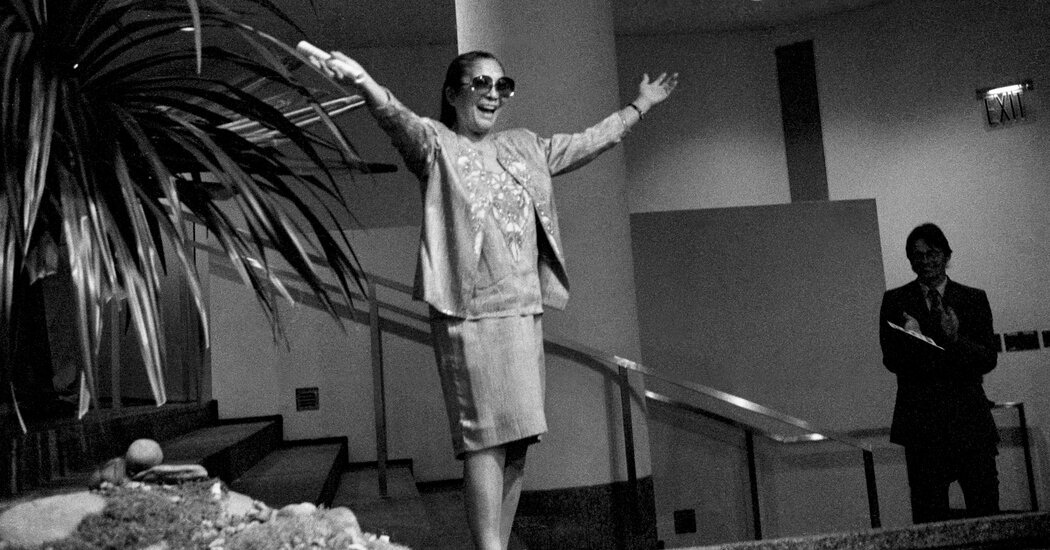“They were like magnets, man, from the start,” her son Robert said. “Soul mates.”
Nobuko Emoto was born on March 3, 1926, in San Pedro, Calif. Her father, Kazumasa Emoto, was a farmer who brought fresh vegetables to Los Angeles markets. Her mother, Kimiko (Hamamoto) Emoto, was a homemaker.
Nobuko, her parents, her two sisters and her two brothers were among the estimated 120,000 Japanese Americans forcibly relocated during World War II to internment camps, mostly in Western states. Mr. Emoto lost his trucks, his equipment and his land.
During her incarceration at the Gila River Relocation Center in Arizona, Nobuko wrote a newsletter about goings-on at the camp.
She and her family were released in 1945, and she finished high school. She soon married Masao Narita, with whom she would have seven children. She entered Gettysburg College in Pennsylvania in 1948 and studied theater there, but left after one year.
After Ms. Narita and her husband divorced in the mid-1950s, she worked in various jobs in the Long Beach, Calif., area. Looking for a better career opportunity, she left for New York City in 1969, taking a job with the International Council of Shopping Centers.
Soon after her move, she was walking in Central Park when she heard jazz being played. One of the musicians, the bassist Gene Taylor, urged her to volunteer for the renowned jazz ministry at St. Peter’s Church, on Lexington Avenue near East 54th Street. (In later years the church would be the site of her annual birthday party, which featured live jazz.)
